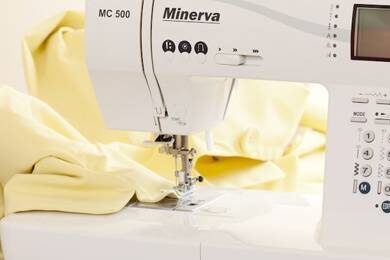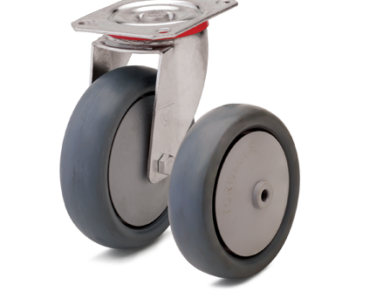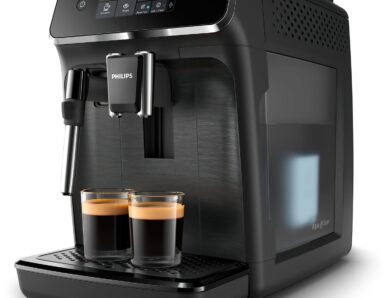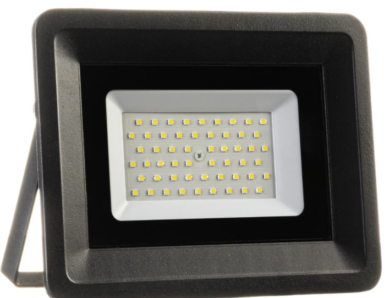Characteristics of types of water heaters, prices of purchase and installation of flowing devices for giving
For families, living in the area, where there is no connection to the centralized hot water supply network, the question of choosing a heater is particularly acute. Electric instantaneous water heaters will help to fully address the issue of hot water supply to an apartment or private house for household and household needs.
Characteristics of flowing electrical appliances
description
They are compact, environmentally friendly device, which produces hot water in unlimited quantities for a short period of time immediately after switching on. The waiting time is from 10 to 15 seconds. Usually to ensure kitchen work requires the power of the flow device from 3 to 6 kw. Using a shower will require increasing the power of the electric water heater to 7-11 kw.
The principle of operation
Water is passed through a small chamber with a heating element placed in it. Contacting its surface, the water is heated and enters the tap. The heating element starts its work after connection to the network and heats up only when the tap is opened, that allows to spend the electric power in the period of use of hot water. Activation of the heating electric element is carried out automatically, which is very user friendly.
It is necessary for successful work, to be in the water supply network pressure not less 0,4 atm., otherwise the heating element may burn without heat transfer to the water jet, and the manufacturer will not make warranty repairs, because the conditions of connection and operation are violated. Productivity of a flowing water heater depends on initial temperature of entrance water and power of the electric flowing device.
To use a flow-type water heater with an electrical connection requires a large allowable power per apartment. Water heaters with consumption over 5 kW are not even equipped with an electric plug. This is done for that, to the consumer, buying such a powerful flowing device, could not immediately plug it into a household outlet, that is not designed for use with such a water heater.
It is not recommended to use instantaneous electric water heaters in private sector buildings, where there is no centralized cold water supply network. It is possible to install flowing devices when using a well only in the presence of a pump, built into the supply pipe, to stabilize the water supply. The same rule applies to residents of the upper floors of old buildings, where there is a constant problem with the supply of water and its pressure in the pipes.
Types of heating elements
They exist in two types - TEN and spiral.
-
TEN is a copper tube, placed in a steel shell much less often. Reliable heater, more economical to operate due to the fast voltage time. It is undesirable to use this type of item, if the water is hard or highly mineralized, which leads to the deposition of salts on the walls of the heater. More often it is put in single-phase flowing water heaters.
- The open spiral is made of an alloy of nickel and chromium or other refractory compounds. If a tubular spiral version is used, then it hides in a casing. This combination allows to detect the water heater low sensitivity to air plugs in the pipes and does not depend on water hardness. But the spiral, hidden in the flask, slower reaches the stated power limit and the size of such a flowing device is slightly larger.
Subdivision by method of connection
Electric water heaters are available single-phase and three-phase.
single-phase water heaters
Their power is determined within 12 kw. Operating power can be regulated by water flow sensors. They are used to turn on a number of heating elements depending on the pressure of the flow of water. When you turn on the tap on a thin stream, all located in the device Shadows will not be included. It is necessary to open the tap on a full stream, additional heaters for fast power gain will be connected immediately. Such sensors save energy costs.
Control sensors for liquid temperature monitoring are also installed, heated. they do not allow water to overheat and burn the user.
Instantaneous water heaters in some versions are equipped with additional types of equipment for electronic control. All operation data of the instantaneous water heater are shown on the display - water heating, its consumption over time and the power of the heating element at the moment. If a failure occurs, the control system will turn on the signal indicator and thus warn the owner about overheating of water. Some models have a remote control of the water heater. Devices with the largest number of sensors and control devices have a higher price in the consumer market.
Flowing devices of three-phase connection
Water heaters are connected to a three-phase network and they have power from 12 to 27 kw. Such flow devices are usually provided with a heating power regulator. This device saves electricity costs in the summer. Such water heaters are more expensive, but the presence of two switching positions depending on the different inlet water temperature saves a lot of money.
For even more economical operation, buy an electric water heater with four levels of power. Such a device is even more expensive, but allows you to work without unnecessary energy costs. Adjustment of the included power can be carried out manually or by electronic devices. The second option is more reliable and monitors the operation of the water heater every minute.
All calculations of the required power are made automatically, and when comparing them with water temperature, the given command is given to establish the amount of consumption. Rising and falling temperatures occurs smoothly and imperceptibly. In such instantaneous devices, price and quality are reasonably combined. The screen will show all the data on the operation of the device.
Simplified instantaneous electric water heater does not provide such adjustments and automatic control. It simply limits the heating of the water to the desired limit at considerable pressure of the water flow in the pipes. The price of such simple electric water heaters is much lower, making it accessible to a wider range of consumers. Three-phase flow devices are usually produced with heating elements of the spiral type.
Instantaneous water heaters of three-phase type are produced mostly by foreign manufacturers. Due to the difference in the value of the power of the grid abroad and in Russia, the performance of instantaneous devices for water heating can be reduced to five percent. The price of three-phase water heaters is higher than single-phase analogues, but they justify it with a large amount of hot water and a quick way to get it. The price of devices also depends on the number of additional devices and control sensors. Electronic control has a higher price, and hydraulic is low cost.
Types of water heaters depending on the pressure
Pressureless flow devices
Pressure is not the only difference between the two types of water heaters. Power of the device without requirement of water pressure ranges from 3 to 7 kw. It cannot be connected to the water supply directly. The flow-free pressure type is used, usually, to use one point. Thanks to the compact small size it is established in any point and does not demand additional place.
They work on the principle, that the internal pressure does not exceed atmospheric, and protection against high pressure in water pipes occurs by means of the crane. Low power, water heaters of this type can easily provide a shower in the summer. Recommended for installation in country houses and cottages for temporary use.
Installation is usually carried out over the sink or on the fence of the shower. The shut-off valve is located in front of the heater, therefore it is not dependent on the water pressure in the pipe. The set includes a shower sprayer for that, to be able to use the services of such a pressureless water heater, despite that meager water pressure, which he publishes in small quantities. spray cover provided with holes very small diameter, which are prone to rapid clogging.
Pressure flowing water heaters
Their characteristics allow application for several points of water analysis at power from 4 to 6 kw. This allows you to not only take a shower, but also to wash dishes in the kitchen area. To take baths, you will need more power - up 12 kw. E-government will cope with the regulation of functions and save electricity.
Unlike pressureless flow devices, installation in hidden places of the apartment is allowed, example, under the bath or in the niche of the kitchen sink. When you open the tap, the electronics fix the beginning of the water intake and gives a signal to inclusion of a heating element. There are also devices with hydraulic control. Their characteristics are the simplest and most reliable, and at a price they are more acceptable. Electronic have a high price, but create conditions for comfortable use. To date, mixed types have been developed, when manufacturers install water meters and temperature control devices on hydraulic devices.
Disadvantages and advantages of flowing devices
positive characteristics
-
you can use heated water without time limit, heating elements will emit hot water for a long time, until a person's need for it ceases;
- in the absence of a place to use instantaneous water heaters will not be a problem, as they are very compact and located in any convenient place, the lack of a storage tank makes it small;
- the device has an attractive beautiful design with streamlined shapes;
- strong and reliable electric water heaters will last a long time without breakage;
- in terms of characteristics much more economical than storage devices, as work only at the right time for heating, the rest of the time there is no electricity consumption;
- ideal for work in country houses and summer showers;
- minimal care and lack of periodic maintenance.
Disadvantages of flowing devices
- increased power instantaneous water heaters requires, in most cases, replacement of electrical wiring in the apartment, moreover, the entire home network must rely on the total capacity of other electrical appliances;
- when connecting high-power units (from 9 kw) the installation of a protective device for emergency shutdown of the device is required;
- the same powerful instantaneous water heaters must be connected only to three-phase network;
- when connected to the water supply network with low operating pressure, the installation of the pump for elimination of interruptions with water supply is required.
How to determine the efficiency of hot water
Considering the price of water heaters, it should be said, that a hydraulically operated flow device is better than a storage heater. But if you choose to buy a powerful flowing device with a set of all electronic accessories, then it will be more expensive than the boiler.
The amount of electricity both types of water heaters use the same. It may seem, that instantaneous devices consume it more. But to heat one cubic meter of water in both devices requires the same amount of electricity, there will be water accumulated or heating will be carried out from short-term contact with Ten.
If you take into account, that the boiler constantly in the next mode maintains temperature of a full tank of water, and flow-through types work only as needed, then you can judge, that storage devices lose in this characteristic, as efficiency.
To correctly judge the power of different heaters, the unused power of the appliance must be taken into account, and the characteristics of the output result. sometimes useful take these two indicators into account, to find out the efficiency of the device.
The choice of water heater is made after that, how to determine the amount of water needed at different intervals. It will be useful to consider the possibility of allocating space for the storage device, and if it is not enough, then use the flow option. The presence of powerful wiring in the apartment also speaks in favor of the flow option, the water pressure in the system should also be taken into account.




